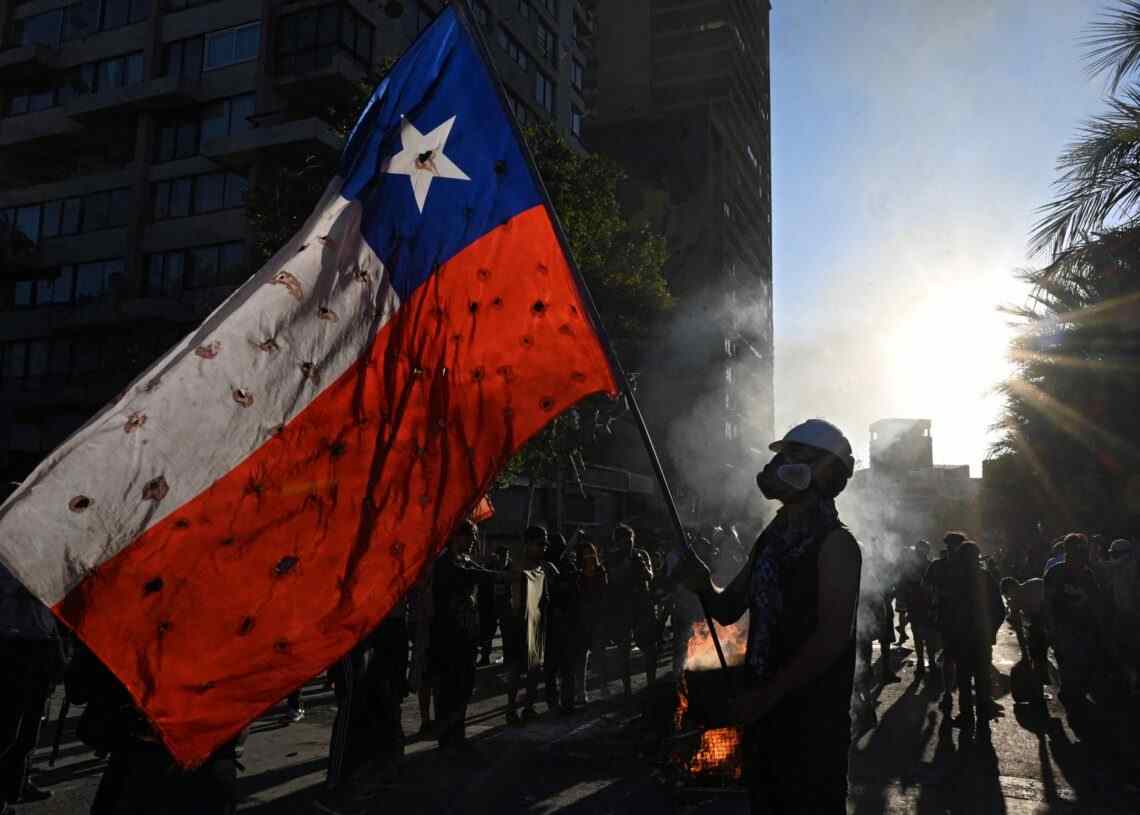
Chile is still experiencing the consequences of the 2019 social uprising, known as Estallido
The succession of President Gabriel Boric, which begins this Sunday (16) with the first round of general elections, is a kind of dispute between the right and the left in Chile, which have been locked in a fierce dispute for political command of the country since 2019, according to analysts. Surveys indicate that left-wing Jeannette Jara leads with 33.2% of voting intentions, ahead of two far-right candidates José Antonio Kast and Johannes Kaiser, who are tied with 16.8% of votes, according to a study by Atlas/Intel.
Chile is still experiencing the consequences of the social uprising of October 2019, known as Estallido, which took to the streets and was responded to by state repression, with 32 protesters killed and 3,400 injured. With a leftist bias and initially demanding social reforms, the protests were capitalized on by the Chilean right, which managed to capitalize on the feeling of distrust and frustration, presenting itself as a defender of order and security.
Winner of the election after Estallido, the leftist Boric tried in his first year of government to implement a constitutional reform to retire the previous charter, which dates back to the times of the Pinochet dictatorship (1973 – 89). The plebiscite, however, rejected the proposal, which brought broad social rights and significant environmental protections, as being too progressive.
“I believe that the left overestimated its strength and lost the favorable moment after the outbreak,” José Maurício Domingues, from the Institute of Social and Political Studies and political analyst at the State University of Rio de Janeiro (UERJ), told Brasil de Fato.
He says he thinks that at the time of the first plebiscite, “the left didn’t realize mandatory voting [na consulta de 22] it would bring an electorate to the game that had not voted for Boric. The streets are one thing, the formal political system is another.”
“But the right was also wrong”, continues Domingues, referring to another proposed constitution, even more reactionary than the current one, which was also rejected the following year, in 2023.
“In a way, this election is a distraction, but not in an absolute sense. Control of congress will be very important too.”
Jeannette Jara, from the Unidad por Chile coalition; José Antonio Kast, from the Republican Party; Evelyn Matthei, from the Independent Democratic Union; Franco Parisi, from the Popular Party; and Johannes Kaiser, from the National Libertarian Party | Rodrigo Arangua and Raul Bravo/AFP
Immigration and crime
In addition to the next president, this year’s elections also renew the Chilean Legislature. Research shows that crime is the issue that most concerns the country’s electorate. A study carried out by Ipsos in 30 countries in October places Chile as the second country most concerned about the issue, with 63% of the population stating that improving security is the main task of the next president.
Despite being one of the safest countries in Latin America, crime is increasing rapidly. The number of homicides has doubled and kidnappings are at a historic high, which explains why the topic was one of the most discussed – alongside combating illegal immigration – by all candidates, including the communist Jara, in a rare stance from the progressive camp.
“Immigration control in fact questions traditional positions of the left, with the defense of everyone’s right to travel and the hospitality that liberal thought itself originally defended. But we cannot forget that popular sovereignty ultimately defines who inhabits a given country. There is always a tension between these two vectors”, says Domingues.
“In the case of security, it is past time for the Latin American left to understand that this is an issue that affects everyone. Obviously, although he addresses this issue, Jara’s positions are very different from those of the right-wing candidates.”
But, even leading in the first round, the Atlas Intel survey indicates that Jara would lose a possible second round (scheduled for December) to his main right-wing and extreme-right opponents if the election took place in early November.
The UERJ analyst says that it is certainly hindered by the anti-communism that exists in the country, but “perhaps it will not be an insurmountable barrier when there is unity on the right in the second round and it becomes clear that it is a reliable option for democracy”.
Regarding his competitors, he says that “Katz was the candidate of the hard right, but at least apparently civilized. Kaiser is running on the extreme right and may, by appearing more anti-system, overtake his competitor on that side of the field. This is a global trend.”
Originally published by Brasil de Fato on 11/14/2025
By Rodrigo Durão – São Paulo (SP)
Editing: Nathallia Fonseca
Source: https://www.ocafezinho.com/2025/11/14/eleicao-presidencial-e-tira-teima-entre-direita-e-esquerda-no-chile/

